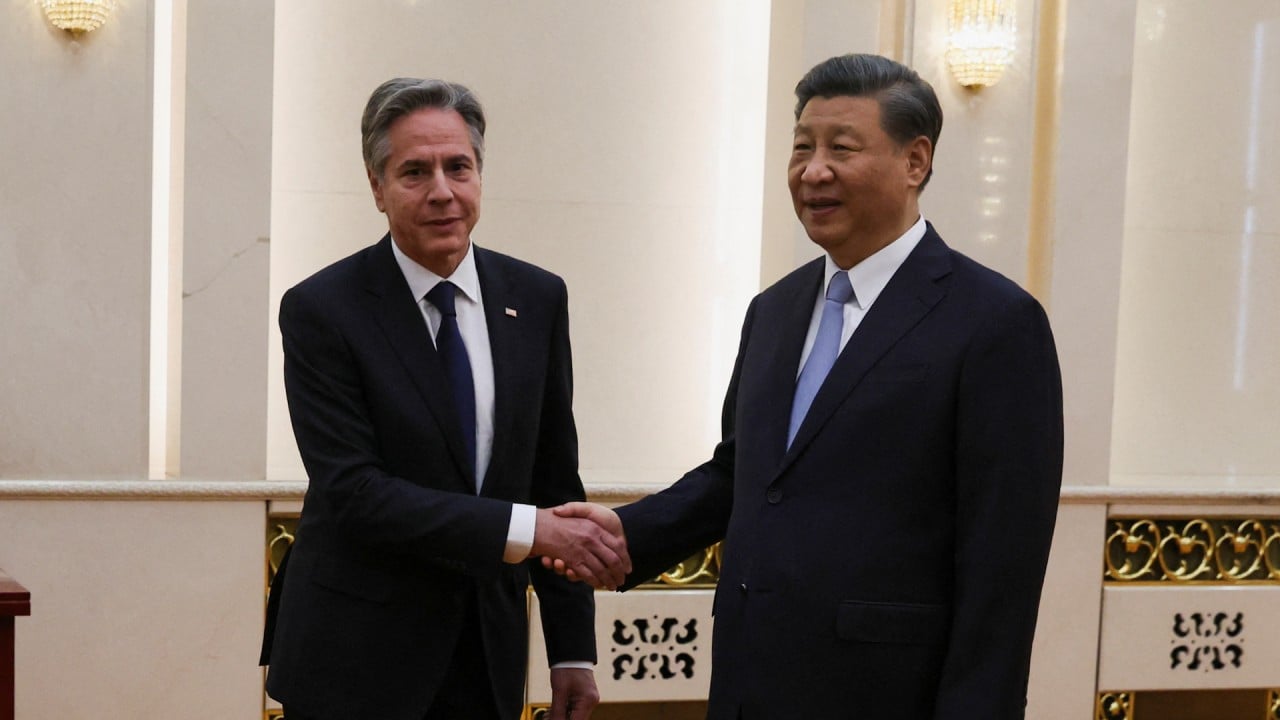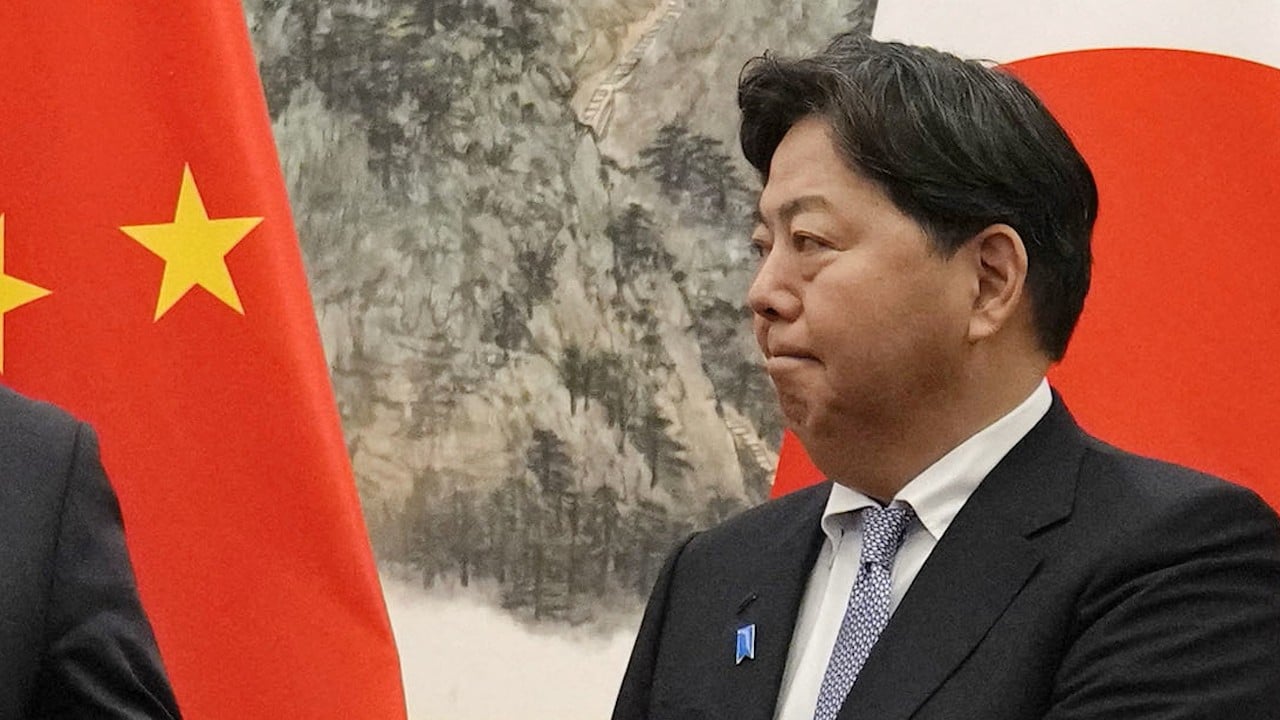But the concentration of the Communist Party’s power over diplomacy, the ambiguity of the law, and a lack of clarity about the definition of national security may create fresh barriers and uncertainty for overseas investors and business operations in China, pundits say.
The law was the latest step in China’s general legalisation of national security, military and foreign affairs that began in the mid-2000s and accelerated under Chinese President Xi Jinping, according to Keith Hand, an expert on Chinese law at the University of California’s Hastings College of the Law.
Hand, director of the university’s Centre for East Asian Legal Studies, and a member of the National Committee on US-China Relations, said the new legislation was of “important symbolic significance and signalling functions”, but its practical legal impact was likely to be limited.
“The intent of the law is to burnish China’s international image, signal China’s determination to use domestic law as a tool to address international challenges, and provide a comprehensive legislative framework that links the suite of more specific laws and regulations China has enacted over the past six or seven years,” he said.
“Overall, however, it is quite general and declaratory. Because it is so general, it is unlikely to be cited as the principal basis for concrete legal action.”
The law was also another step in Beijing’s efforts to address the asymmetries in its capacity to use domestic legislation to deal with external challenges, as part of its lawfare strategy against the US and its allies in what Beijing sees as their intensifying cold war-style confrontation.
While there is no comparable US law laying out its overarching foreign policy principles, there are clear parallels between detailed laws and regulations China has enacted in recent years and a range of US legislation used to pressure China.
Washington’s ability to wage trade, economic and technology wars against China through legal means since former president Donald Trump took office in 2016 has exposed “significant asymmetries” in the capacity of the domestic legal tools that US and China leaders can deploy, according to Hand.
Over the years, the US trade war, the technology blockade, campaigns against Chinese telecoms giants Huawei and ZTE, sanctions related to Xinjiang and Hong Kong, and many recent US legal actions targeting Chinese investment and other interests have sunk bilateral ties to a historical low.
Beijing was particularly infuriated by the high-profile detention of Huawei executive Meng Wanzhou in 2018, a controversial move under America’s “long-arm” jurisdiction that China denounced as a cover for US hegemony and “imperialism”.
Xi has since repeatedly called for accelerating the construction of “a legal system applicable outside China’s jurisdiction” to counter America’s jurisdictional reach and “coordinate the promotion of domestic and international governance”.
“As the US and other powers respond to China’s rise, perceived foreign provocations generate public pressure on Chinese leaders to respond with tough action or face public disapproval,” Hand said. “By developing and deploying foreign-related domestic law, Chinese leaders can narrow the gap with US law and demonstrate resolve to domestic audiences.”
Ling Bing, a professor of Chinese law at the University of Sydney, said the foreign relations law arose from Xi’s push for a legal regime governing China’s foreign relations and transactions.
“Xi clearly considers lawfare as an important dimension of international ‘struggle’, and domestic law is an essential part of the lawfare. Hence, the making of this law,” he said.
He described the legislation as largely a “framework” law, which instead of “creating specific tool kits for foreign policy or national security”, laid the foundation for “more specific, biting measures in the future”.
Observers also pointed to Beijing’s efforts to strengthen the extraterritorial reach of domestic laws to empower China’s leaders to punish foreign entities for perceived hostile acts beyond its borders, such as the Hong Kong national security law.
The slew of new laws with extraterritorial reach reflects this resolve to take a tougher line in defending China’s interests
Katja Drinhausen, an expert at the Mercator Institute for China Studies (Merics) in Berlin, said China had already passed a series of laws that formally authorised Beijing to impose countermeasures and sanctions against foreign actors for behaviour deemed hostile to national interests.
“The foreign relations law is much broader in its scope and ambition: it puts China’s security, development interests and global rise front and centre in its engagement with other countries,” she said.
“The slew of new laws with extraterritorial reach reflects this resolve to take a tougher line in defending China’s interests. They add the sheen of legality to Beijing’s actions, but do not fundamentally change the approach.”
But state news agency Xinhua saidthe implementation of China’s laws and regulations in foreign-related fields was “completely different from certain countries’ ‘long-arm’ jurisdiction of their domestic laws”.
Instead, Xinhua said, the law was aimed at addressing “some shortcomings” and that “gaps exist in laws concerning safeguarding national sovereignty, security and development interests”.
According to Xinhua, of the 297 laws in effect in China, 52 cover foreign affairs, and more than 150 others have foreign-affairs clauses, including the Anti-Foreign Sanctions Law and the 2020 Export Control Law.
A study published in June by Francesca Ghiretti, another Merics analyst, stated that China’s use of unilateral sanctions, such as import restrictions and visa and travel bans had increased significantly since 2018.
Of the 39 sanctions Beijing imposed between 2012 and 2023, China imposed visa and travel bans 17 times, adopted import restrictions four times and asset freezes seven times since 2018, according to the study.
Still, Ghiretti described China’s sanctions approach as “relatively restrained”, which tended to target mostly people in the US and high-level individual figures for “a strong signalling effect”, resulting in relatively low costs and limited impacts on China’s economy.
While the measures showed China had become more confident and capable in imposing unilateral sanctions, “for China, sanctions have become a tool in the geopolitical struggle against the US in particular”, she said.
Wang Jiangyu, a professor at the school of law at City University of Hong Kong, said while extraterritorial jurisdiction itself was very common in international society, the law’s effectiveness would largely depend on its enforcement, which was too early to evaluate.
“No country can count on a law to minimise or to reduce the [external] risks because a deteriorated external environment is very much beyond China’s control,” Wang said. “There’s not much China can do, but in terms of providing legalisation or a stronger degree of legality, as well as transparency, I think the law can do a good job.”
The law pays a lot of lip service to upholding international law, yet its key provisions on China’s commitment to international law leave a lot to be desired
But Ling, from the University of Sydney, said provisions that subjected international treaties to the Chinese constitution raised questions about China’s conformity to international law and treaties.
Article 30 of the law stipulates that “treaties and agreements that the state concludes or accedes to shall not contravene the constitution”, and Article 31 said their implementation “shall not undermine the sovereignty of the state, national security and public interests”.
“The law pays a lot of lip service to upholding international law, yet its key provisions on China’s commitment to international law leave a lot to be desired,” he said.
While such provisions were “not uncommon in other legal systems”, Ling said international law required that no country can use its domestic law, including its constitution, to excuse its violations of international law – something China had often preached in the past.
He said the new provisions were “problematic and concerning” because they had the potential to allow China to disregard treaties “on the excuse of its some opaque constitutional norms”, without a functioning system of interpretation for China’s constitution.
Hand echoed Ling’s concerns, adding that the new law may give Beijing greater leeway to ignore international law and treaties, citing China’s rejection of the 2016 ruling in the South China Sea arbitration.
“I don’t think the law will change much in terms of China’s existing practice of international law. To the extent China is inclined to ignore or override its international commitments, it would do so even in the absence of the foreign relations law,” he said.
In big picture terms, I think we can see this law as an example of Chinese decoupling from international law
George Magnus, a research associate at Oxford University’s China Centre, said the new law was significant because “it is unique for a major country to decide, in effect, that international law is not fit for purpose and that its own national law will take precedence”.
“In big picture terms, I think we can see this law as an example of Chinese decoupling from international law,” he said.
In addition to the existing legislation, such as the anti-sanctions law and Beijing’s campaigns targeting private companies and US due diligence firms, Magnus said the new law would make China “an increasingly hostile and awkward place in which to do business”.
The law may also cast fresh doubts on Beijing’s efforts to attract foreign investment and rebuild confidence in China’s slowing economy amid widespread concerns about its business environment.
Henry Gao, professor of law at Singapore Management University, said some parts of the legislation made him uneasy. Article 5, he said, emphasised the party’s “centralised and overall leadership” on diplomacy, while Article 30 said China would implement its treaty obligations “in good faith”.
“This could mean that it would not strictly follow the letter of a treaty if it is not considered to be made in good faith, such as the Phase 1 trade agreement with the US [in January 2020]. This will further add business uncertainties,” he said.
Gao noted that Article 6 explicitly required that all Chinese institutions, enterprises, social organisations and citizens must “safeguard China’s sovereignty, national security, dignity, honour and interests during international exchanges and cooperation”.




